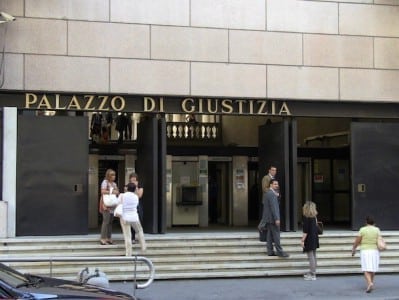With the'ordinance no. 33428 of 11 November 2022 the Court of Cassation intervenes on the subject of worker stress, placing the compensation on the company.
Let's see the terms of the question.

The case starts from a appeal brought by a scientific informant against a sentence of the Court of Appeal of Genoa which, reforming the provisions of the court of La Spezia, had denied the same the damages for serious demotion (in particular, the appellant had contested the commercial promotion of the products, alongside that of scientific information) and bullying.
The court ruling
The court of La Spezia, in facthaving ascertained the serious demotion and mobbing behavior to which the worker had been subjected, had sentenced the company to pay compensation for the biological damage temporary and permanent, damage to personal and professional dignity and image, as well as the medical expenses incurred due to the events alleged.
The judgment of the Court of Appeal
In reform of the provisions of the judge of first instance, the Court of Appeal found that:
- dispute of duties, also with reference to the provisions of the collective bargaining agreement, it had happened by the worker after about thirty years of activity presso l’azienda, senza che l’interessato avesse mai mostrato nulla da eccepire;
- all the scientific representatives in force carried out commercial promotion activities,next to that of disclosure;
- the attitude of the new area manager, declared a mobber by the worker, it was not such as to harm his personal dignity, inserting himself in a normal working context perceived as oppressive and denigrating by the subject due to his own distorted personal perception.
The decision of the Supreme Court
Against the judgment of the Court of Appeal, the appellant lodged an appeal based on two grounds:
- violation and false application of the art. 2087 code civ. in relation to the art. 2103 of the same code and in art. 122 of Legislative Decree no. 219/2006, for not having assessed the prohibition of comparison by the Court;
- misjudgment in deeming his being subjected to the appellant's professionalism at the marketing direction.
Inail itself, continues the Supreme Court, has identified this case in its circular as occupational diseases not listed under the term "psychosomatic diseases from work organization dysfunction", with all the subsequent articulations that mobbing can assume and which have been the object of analysis by the jurisprudence and European legislation.
The straining, then, it configures itself in light of all this whenever stressful behaviors occur against an employee, even if they are single or limited in number,and the company is in any case responsible, even if only through fault, and required to pay compensation for failure to fulfill its duties to protect the workers' physical and mental health.
Attachments
Related news:
Cassation. Ordinance: The ISF is not a commercial agent because it does not sell medicines
Judgment of the Section Work of the Court of Cassation of 15 September 2014, no. 19394 in cui dichiara che “anche se qualificato nero su bianco come contratto di agenzia, va invece ricondotto ai canoni del lavoro subordinato il rapporto di colui che – pur con un limitato margine di autonomia – svolga prevalentemente l’attività di informatore medico-scientifico piuttosto che quella di agente di commercio”.
Section Work of the Court of Cassation in a recent ordinance no. 10158 of 16 April 2021
The false VAT numbers. Two emblematic sentences
AIFA Lettra Dr. Magrini on ISF coaching
Judgment Court of Marsala. The ISF is not a commercial agent
La Spezia Court: the ISF cannot be assessed on the basis of market trends
Note:
The agency contract stipulated with an ISF is a simulated contract and has no effect between the parties. On the other hand, the disguised contract takes effect, ie the contract that the pharmaceutical company has concealed (often and willingly precisely to evade the protections of subordinate work), which is certainly an employment contract.
Pharmaceutical companies that abuse the agency contract (some even use for decades and decades exclusively ISF pseudo-agents directed by employed AMs, or use partly ISF employees and partly ISF pseudo-agents who do the same things, or even constitute lines of only ISF pseudo-agents exploited and exposed to constant threat of dismissal), and which often impose on the ISF the periodic mass signing of "grave" conciliations as a condition for continuing to work (conciliations which, however, are never grave, since the worker cannot renounce the future rights deriving from the of the well-established working relationship), they will have to deal with a sentence of the Supreme Court (Civil Cassation ord. Section L No. 10158:2021) which has placed a barrier to the systematic avoidance of the protection of subordinate work with reference to FSIs considered second-class only because they are disguised as commercial agents. (Lawyer Antonio Pileggi)
Il commento dell’Avv. difensore, Emanuela Messina
A ghost is haunting Italy, and not from today. He wanders between pharmacies and hospitals, wearing coats of every shape and colour, with few rights and multiple duties and obligations. He is the pharmaceutical sales representative, an operator who, according to the law, should carry out the information activity in a completely autonomous way
Obviously, multiple injuries to the rights of pharmaceutical reps derive from this behavioral model: injury to one's autonomy in favor of de facto subordination (but without the guarantees provided for the protection of subordinate workers), injury to one's dignity, moral personality, image, physical and mental health; mobbing behaviour: all extremely difficult circumstances to prove in the course of any future litigation as a consequence of the substantially and juridically hybrid position of the informer himself.
Extremely significant, in these respects, appears a judgment of the Court of Cassation just published (33426/2022), which had to settle the conflict between two objectively opposite sentences on the merits: while the Court of La Spezia, having ascertained the existence of serious demotion and mobbing behavior to the detriment of the informant – difeso dall’Avv. Emanuela Messina del locale Foro -, aveva condannato la casa farmaceutica al risarcimento del danno biologico temporaneo, del danno biologico permanente, del danno alla dignità ed all’immagine personali e professionale, nonchè al rimborso delle spese mediche sostenute, la Corte d’Appello genovese, in accoglimento dell’appello della datrice di lavoro, ha ritenuto che il Tribunale avesse assegnato rilevanza eccessiva alle attività di carattere commerciale svolte dal ricorrente (per quanto espressamente vietate dalla Legge all’informatore scientifico); ha ritenuto altresì che le problematiche emerse con il capo-area non fossero oggettivamente lesive della reputazione del ricorrente e che la situazione lavorativa, caratterizzata da “normali” dinamiche conflittuali, fosse stata vissuta dal ricorrente con la mera soggettiva percezione di essere vessato e denigrato dai propri superiori, senza oggettivo riscontro, respingendone così tutte le domande, nessuna esclusa.
Risulta evidente come un’impostazione così rigida, quasi dottrinale, non abbia consentito ai giudici del gravame di fare piena luce sul caso concreto in esame. E’ già lecito nutrire forti dubbi sul ritenere quasi irrilevante il fatto che venga imposto di svolgere attività commerciale ad una figura che, per espressa disposizione di legge, ne risulta assolutamente incompatibile, dovendo unicamente svolgere informazione scientifica; nonché sul definire “normale” – e quindi non nocivo – un rapporto perennemente conflittuale con il proprio superiore; ma ciò che soprattutto appare censurabile è il carattere di lotteria virtuale della fattispecie così come interpretata dalla Corte: qualora emerga il comportamento persecutorio datoriale, il ricorrente vince tutto; qualora residuino dubbi in tal senso, il ricorrente vede rigettata ogni domanda: il Collegio si preclude così la valutazione di ogni sfumatura intermedia tra due statuizioni radicali: assurdamente, o tutto o niente!
Fortunately, the Supreme Court intervenes to recall that between two opposing positions there is always a gray area that needs to be carefully analysed. In particular, according to the Supreme Court, the provisions of art. 2087 of the civil code makes it possible to include all risks related to work-related stress in the compensatory protection, even in the absence of the most stringent assumptions of the bullying or demotion. The distinct case denominated is already known to jurists straining, characterized by stressful behaviors towards an employee, including omissive behaviors (that is, consisting even only in tolerating a work environment that is a source of
According to the principle of law issued by the Cassation, therefore, "falls within the employer's obligation to protect pursuant to art. 2087 of the civil code, in interaction with the right of the worker to the tasks corresponding to his contractual classification, the protection against any organizational constraint”: substantially all the provisions imposed by pharmaceutical companies to the detriment of their scientific representatives are included, if they conflict with the provisions of the law or with the contractual framework signed by the parties, with the consequent right to compensation for any damage suffered. And another step forward towards the protection of scientific reps has been accomplished, albeit with difficulty.
Related news: On the subordinate nature of the activity carried out by the scientific medical informant
